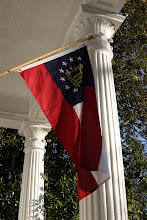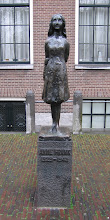An intelligence official says the government has nearly doubled the number of people on the no-fly list since the attempted Christmas Day attack near Detroit.
The official says that in the two months since a Nigerian man tried to blow up a Detroit-bound airplane, the government's list of suspected terrorists banned from flying grew from about 3,400 to 6,000.
The list expanded, in part, to add people associated with Al Qaeda's Yemen branch and others from Nigeria and Yemen with potential ties to the alleged would-be bomber, Umar Farouk Abdulmutallab.
Despite changes over time, the list remains an imperfect tool, dependent on the work of hundreds of government terrorism analysts who sift through massive flows of information. The list ballooned after 9/11 and has fluctuated in size over the past decade. In 2004, it included about 20,000 people. The standards for getting on the list have been refined over the years, and technology has improved to make the matching process more reliable.
It could take minutes to put a name on the list. Or it could take hours, days or months.
That's because the list is only as good as the nation's intelligence and the experts who analyze it. If an intelligence lead is not shared, or if an analyst is unable to connect one piece of information to another, a terrorist could slip onto an airplane. Officials allege that's just what took place ahead of the attempted Christmas Day attack on a Detroit-bound jet.
There are four steps to banning a person from flying:
--It begins with law enforcement and intelligence officials collecting the smallest scraps of intelligence -- a tip from a CIA informant or a wiretapped conversation.
The information is then sent to the National Counterterrorism Center, a Northern Virginia nerve center set up after 9/11. There, analysts put names -- even partial names -- into a huge classified database of known and suspected terrorists. The database, called Terrorist Identities Datamart Enterprise, or TIDE, also includes some suspects' relatives and others in contact with the suspects. About 2 percent of the people in this database are Americans.
Analysts scour the database trying to make connections and update files as new intelligence flows in. Abdulmutallab's name was in TIDE before the Christmas Day attempt, thanks to a warning his father gave the U.S. Embassy in Nigeria about the alleged bomber's extremist ties in Yemen.
But much of the information coming into the center is incomplete. This is one reason analysts didn't connect Abdulmutallab's father's warning to other fragmented pieces of information. Because of this, analysts did not send his name to the next tier of analysis at the Terrorist Screening Center, another Northern Virginia intelligence center, staffed by analysts from federal law enforcement agencies across the government.
--About 350 names a day are sent to the Terrorist Screening Center for more analysis and consideration to be put on the government-wide terror watch list. This is a list of about 418,000 people, maintained by the FBI.
To place a name on that list, analysts must have a reasonable suspicion that the person is connected to terrorism. People on this watch list may be questioned at a U.S. border checkpoint or when applying for a visa. But just being on this list isn't enough to keep a person off an airplane. Authorities must have a suspect's full name and date of birth as well as adequate information showing the suspect is a threat to aviation or national security.
--Once armed with information for those three categories, about a half-dozen experts from the Transportation Security Administration who work at the screening center have two options. They can add a suspect to the "selectee list," a roster of about 18,000 people who can still fly but must go through extra screening at the airport. Or, if analysts determine a person is too dangerous to board a plane, they can put the suspect on the no-fly list.
The names on each list are constantly under review and updated as the threat changes.
In 2007, officials removed people who were no longer considered threats. Some were inactive members of the Irish Republican Army, a former law enforcement official said. And in 2008, the criteria was expanded to include information about young Somali-American men leaving the U.S. to join the international terrorist group al-Shabab, the senior intelligence official said. If a person on the no-fly list dies, his name could stay on the list so that the government can catch anyone trying to assume his identity.
At times, officials have allowed passengers to fly even if they are on the no-fly list, the former law enforcement official said. In some cases, this is to let agents shadow suspected terrorists while they're in the U.S. Before this happens, FBI agents and TSA experts consult with each other. If it is decided a suspected terrorist should be allowed on the flight, he and his belongings might then go through extra screening, he might be watched on camera at the airport, and more federal air marshals might be assigned to monitor him during his flight, the former official said.
As the government takes on more responsibility for checking names against the lists, officials hope the number of mistaken identity cases will dramatically decrease. And since Dec. 25, national security officials have been looking at ways to change and improve the standards for placing people on it.
One thing is for sure: Another incident like the Christmas Day near-miss will cause more re-examinations of a system still far from foolproof.
The top Republican on the Senate committee that received an e-mail warning staffers not to visit the Drudge Report said there is no evidence "whatsoever" of an embedded virus on the news site and suggested the warning was a ruse to steer people away from the sometimes-incendiary page.
Inhofe said Drudge is a "great source" and encouraged people to continue using it.
His words of assurance came after the Senate Sergeant-at-Arms, the chamber's official gatekeeper, said the Drudge Report, a news aggregator, and whitepages.com, a telephone directory site, "are responsible for the many viruses popping up throughout the Senate," according to an e-mail from the Environment and Public Works Committee.
Another e-mail from a separate office warned that staffers who had visited the Drudge Report or White Pages had experienced viruses on their PCs.
"Please avoid using these sites until the Senate resolves this issue," the e-mail read. "The Senate has been swamped the last couples (sic) days with this issue."
But Inhofe suggested political motivations were behind the e-mails.
"The liberals, the extremists, they don't want the information that [Matt Drudge] has because he's a man of truth and most of them don't want the truth," Inhofe said.
The Drudge Report also suggested that politics might be behind the warning, noting in an original story that the e-mail came as the "health care drama in the Capitol reaches a grand finale."
The Drudge Report noted that it served more than 29 million pages Monday without an e-mail complaint about "'pop ups,' or the site serving 'viruses.'"
"The site was seen 149,967 times since March 1st from users at senate.gov and 244,347 times at house.gov. [10,825 visits from the White House, eop.gov]" the Drudge Report wrote.
"The Systems Administrator may want to continue taking her antibiotic until the prescription runs out."
A spokesman for the Environment and Public Works Committee said the Senate Help Desk cited the Drudge Report and whitepages.com only as possible examples of Web sites generating pop-up ads that might be the cause of a recent increase in virus infections.
"Our non-partisan systems administrator notified both Majority and Minority staff that this issue had been brought to her attention," the spokesman said in a written statement. "It is still not exactly clear where the increase in viruses is coming from, and staff have been advised to be cautious with outside Web sites at all times."
A Republican aide to the Environment and Public Works Committee told FoxNews.com that there has been "a flurry of activity in the last couple of days" and that a couple of people on the staff had had "computer problems."
According to CNSNews.com, a follow-up e-mail sent late Tuesday did not mention Drudge.
Brent Baker, the vice president for research and publications at the Media Research Center, wondered why the conservative Drudge was cited as an example instead of a liberal site like the Huffington Post.
"The Huffington Post is also a huge site visited by staff," Baker said. "It actually has far more links to outside sources, outside videos that could be seen as potentially dangerous for viruses and worms."
Baker said it appears that "somebody is a little eager to match a culture of hostility to alternative media," referring to Obama's chief diversity officer who, before joining the administration, laid out a battle plan for liberal activists to target conservative talk radio stations.
A terrified 7-year-old boy begged emergency dispatchers to send police to his Southern California home where three armed robbers threatened his parents, according to a recording of the call released Tuesday.
Gunmen broke into the boy's home Tuesday morning and announced that they would take whatever they wanted, Los Angeles County sheriff's Lt. Steve Kenny said.
The boy and his 6-year-old sister hid unnoticed in the locked bathroom while the suspects threatened his mother and father at gunpoint.
"There's some guy who's going to kill my mom and dad," he said breathlessly. "Bring cops. A lot of them! ... And soldiers, too."
The suspects eventually broke into the bathroom and someone screamed. The 911 operator sounded shaken as she explained what happened to her colleagues.
Kenny said the suspects grabbed the boy and asked who he called. He responded, "911." The gunmen fled without taking anything or injuring the family.
"If not for the brave and educated actions of the 7-year-old boy, this might have ended tragically," said sheriff's Capt. Pat Maxwell.
The three men remain at large.
NBC Today; Fox News; CNSNews.com;Reuters.































No comments:
Post a Comment